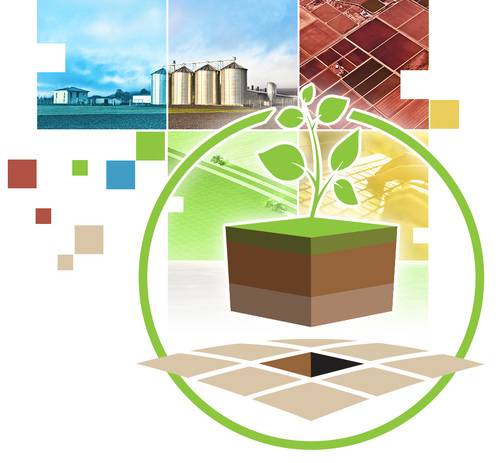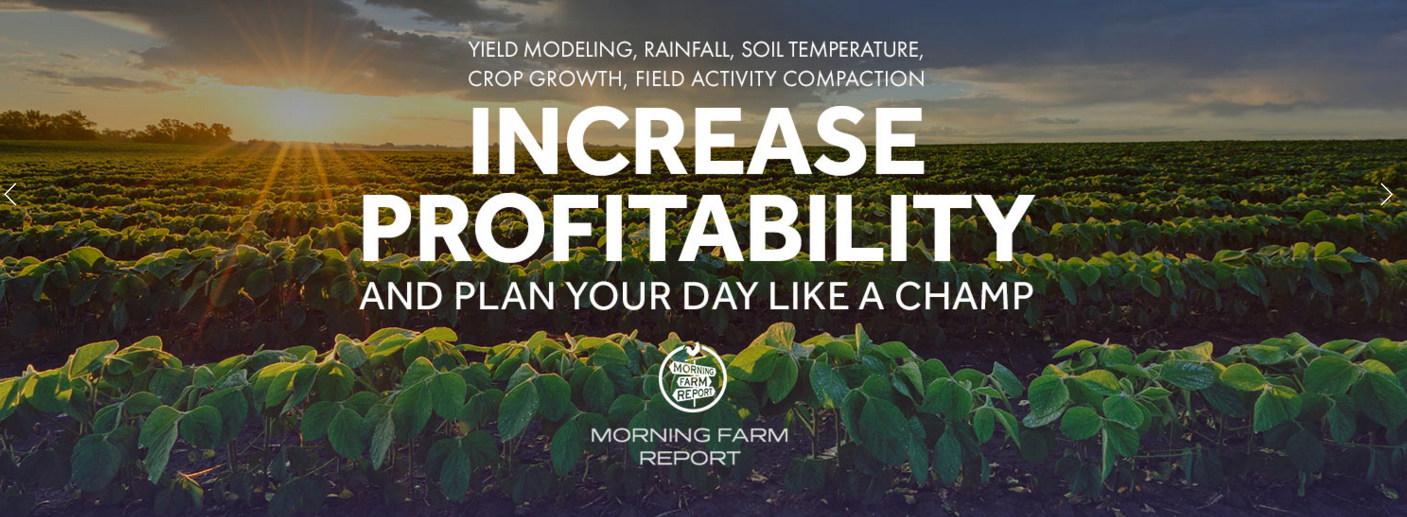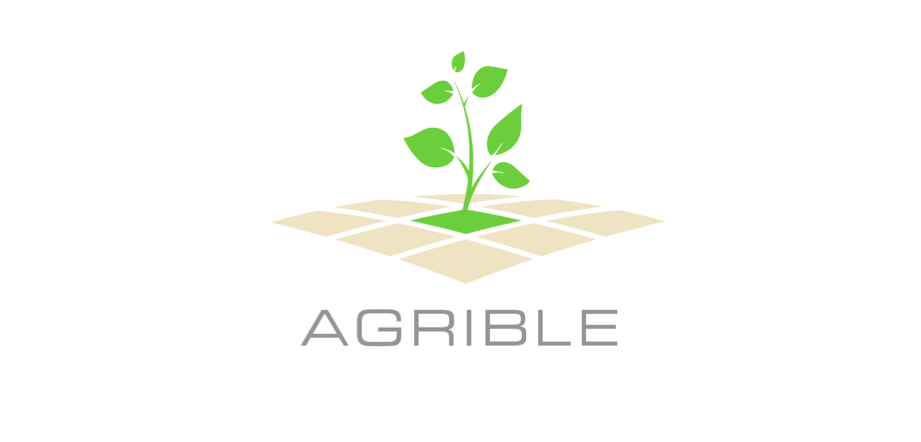Agrible was founded by a conglomerate computer scientists, crop scientists, and agricultural engineering experts and alumni from U of I. They spent almost a year bootstrapping the business during the evenings, weekends, and in the spare time outside of their full time jobs until nabbing an official office in Research Park. What exactly does Agrible do? They mine high resolution data and convert it into materials that are easily relatable to farmers and help to inform farming practices. More simply put, at Agrible, they are data experts.
There is quite a lot of science involved in farming (when to plant, when to harvest, how much pesticide to apply). All these metrics are dependent on weather, soil and timing and all can greatly effect yield. It was my previous understanding that farmers have been doing it for so many years that they just know, with their farmer premonitions, when to plant and harvest. Tim Kuehlhorn, Chief Technology Officer at Agrible, tells me that in some cases, farmers may rely on more old school and traditional practices, but in many cases, farming is extremely technology intensive.
The Agriculture industry is very competitive these days. Farmers now work with super high tech equipment, such as Tractors with GPS that basically drive themselves. There is a big push to develop tools that help farmers do their job at lower cost and more efficiently.

Agrible developed a suite of computer based tools to do just that: take the guesswork out of farming. One such tool, Tractor Time, is an app that informs a farmer of soil conditions before driving his heavy tractor over the soil. If you could imagine the farmer getting up each morning to examine his fields, sloshing around in his boots in the mud would mean the soil is too wet to drive. The Tractor Time app takes data for the whole field and yields one valuable soil moisture metric for favorable or unfavorable soil conditions. Instead of the farmer stomping around his fields he can open the Tractor Time app to tell him the condition of his fields. The app models soil moisture spatially and will give the farmer a green, yellow or red light if it is safe to drive without getting stuck, drive without making ruts, and when the soil moisture is such that planting is ideal (i.e. the water will not drown the seeds or the soil is not compacted).
For the old school farmers that are skeptical of all these new-fangled farming tools, Agrible has developed a free, crowd-sourced rain gauge app called Pocket Rain Gauge. The super-accurate rainfall data, Kuehlhorn says, was acquired with the help of two authorities in computer and atmospheric sciences from U of I, Bill Chapman and Eric Snodgrass. The app takes this 24-hr rainfall data, along with a location tag, to give an accurate rain gauge reading. The farmer using the app can pit the reading against the reading of an actual rain gauge and enter in the gauge reading, if it is different from the reading the app generated.

The suite of tools Agrible has created, from Field Intel to Tractor Time, is growing and will continue to grow. Just recently, Agrible was awarded $4.1 million from Serra Ventures for their product The Morning Farm Report, a sort of electronic Farmers’ Almanac. Since moving into their first official office space less a year ago, Agrible has grown from 10 to around 40 employees and Tim went from being the only programmer to managing a team of programmers. When I asked Kuehlhorn how he envisions the future of Agrible, he had this to say:
I think we are in the prime location to use university resources, expertise and recent grads to grow our business. Champaign is a good place to connect farmers with farm tech. One of the Grand Challenges of the 21rst Century, that populations are growing faster than the world can supply food, will certainly have to be solved by utilizing the vast computing resources that is available with the technology of today.
For more information on jobs, opportunites and resources with Agrible, visit their website.








